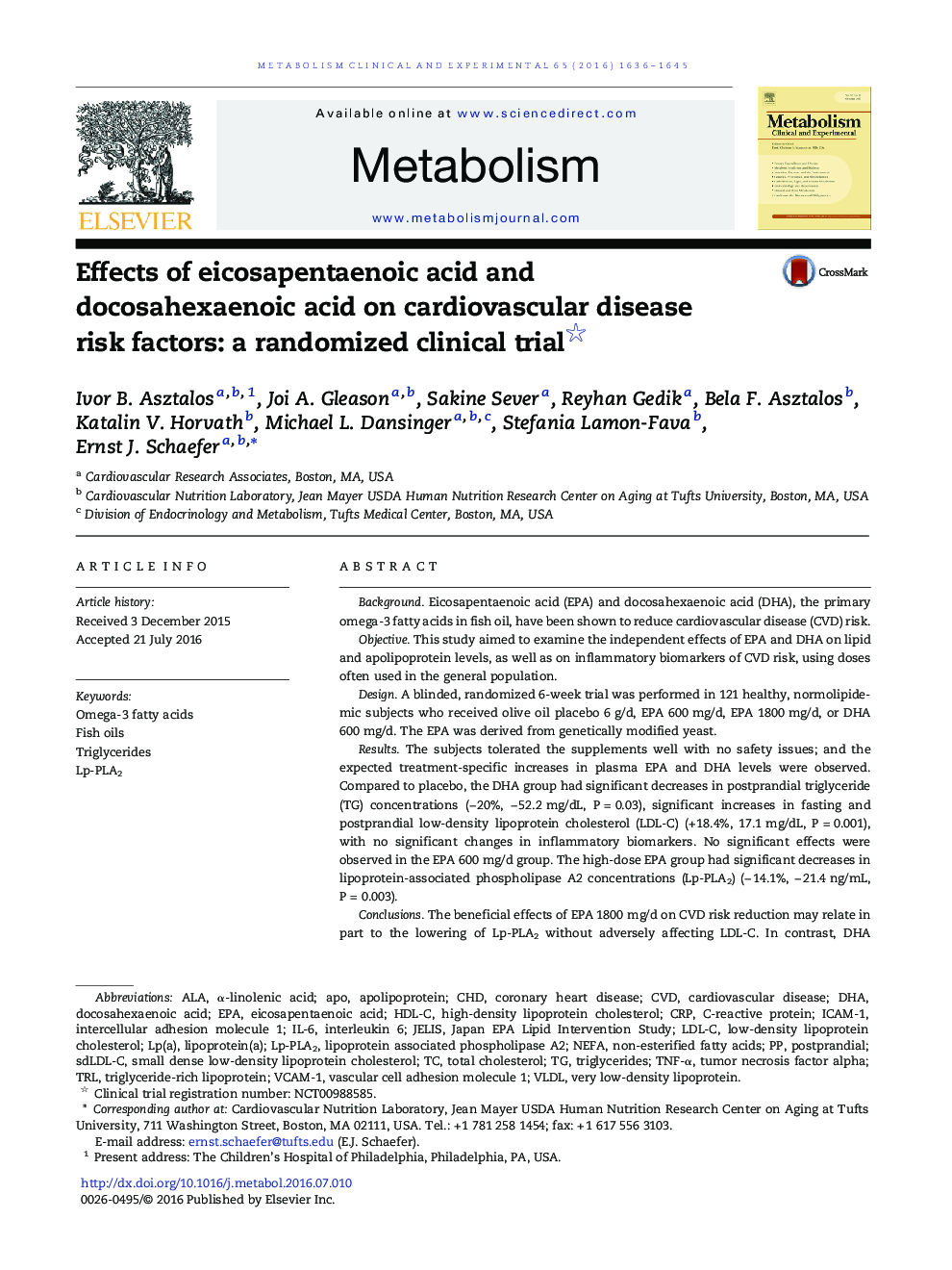| کد مقاله | کد نشریه | سال انتشار | مقاله انگلیسی | نسخه تمام متن |
|---|---|---|---|---|
| 2805352 | 1404553 | 2016 | 10 صفحه PDF | دانلود رایگان |
BackgroundEicosapentaenoic acid (EPA) and docosahexaenoic acid (DHA), the primary omega-3 fatty acids in fish oil, have been shown to reduce cardiovascular disease (CVD) risk.ObjectiveThis study aimed to examine the independent effects of EPA and DHA on lipid and apolipoprotein levels, as well as on inflammatory biomarkers of CVD risk, using doses often used in the general population.DesignA blinded, randomized 6-week trial was performed in 121 healthy, normolipidemic subjects who received olive oil placebo 6 g/d, EPA 600 mg/d, EPA 1800 mg/d, or DHA 600 mg/d. The EPA was derived from genetically modified yeast.ResultsThe subjects tolerated the supplements well with no safety issues; and the expected treatment-specific increases in plasma EPA and DHA levels were observed. Compared to placebo, the DHA group had significant decreases in postprandial triglyceride (TG) concentrations (− 20%, − 52.2 mg/dL, P = 0.03), significant increases in fasting and postprandial low-density lipoprotein cholesterol (LDL-C) (+ 18.4%, 17.1 mg/dL, P = 0.001), with no significant changes in inflammatory biomarkers. No significant effects were observed in the EPA 600 mg/d group. The high-dose EPA group had significant decreases in lipoprotein-associated phospholipase A2 concentrations (Lp-PLA2) (− 14.1%, − 21.4 ng/mL, P = 0.003).ConclusionsThe beneficial effects of EPA 1800 mg/d on CVD risk reduction may relate in part to the lowering of Lp-PLA2 without adversely affecting LDL-C. In contrast, DHA decreased postprandial TG, but raised LDL-C. Our observations indicate that these dietary fatty acids have divergent effects on cardiovascular risk markers.
Journal: Metabolism - Volume 65, Issue 11, November 2016, Pages 1636–1645
